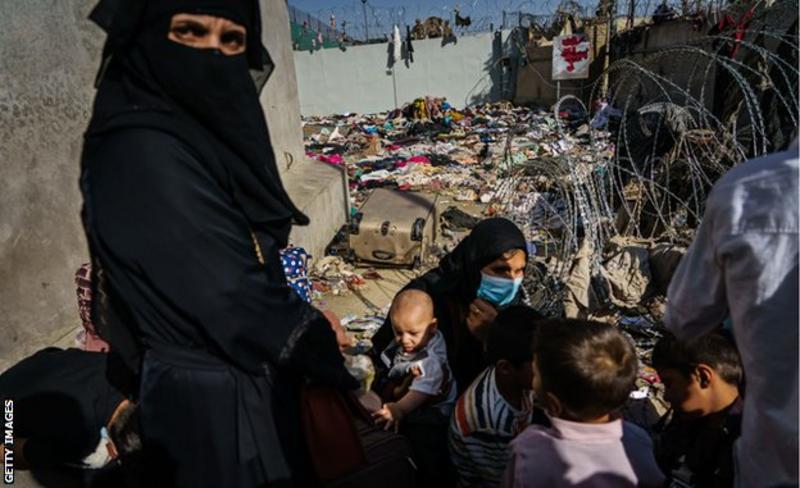The situation at the airport in Kabul was one of complete disarray and desperation. People ran in every direction in complete and utter terror as shots were fired. Fati was one of the thousands of people who were attempting to flee the Taliban at the time.
While growing up in a distinct and significantly different Afghanistan, Fati, a goalie, perfected her English language skills by watching movies and television shows. Her maiden name and age have been changed to protect the privacy of her family. Her full name has also been changed.
In August of 2021, as the Taliban quickly retook control of Fati’s country, she and the other members of the multinational team that she was a part of immediately made the decision that they would have to abandon their homes and their loved ones.
They were a football squad that had been playing together for years, and they represented a future Afghanistan in which women would have more opportunities and freedom. Now, thoughts wandered to the public executions and restricted freedom that had been characteristics of the previous reign of the Taliban from 1996 to 2001. This rule had lasted for a total of nine years.
The idea that the Taliban might ever return had never occurred to Fati. Her first state of astonishment quickly morphed into a growing sensation of helplessness and despair. It was necessary for her to leave.
She says, “I accepted the fact that the war in Afghanistan was over.”
“At that point, I honestly believed that there was no hope for me to continue living, no chance for me to ever step foot outside my home and defend my rights. There is no education, no news, no sports, and absolutely nothing else. We were like dead bodies in our homes.
“For two weeks I never slept. I spent the entire twenty-four hours with my phone by my side, desperately attempting to get in touch with anybody, anyone, who could assist me. Awake during the day and into the night, constantly messaging and browsing social media.”
There was a way out, and Fati and her teammates discovered it. They were helped by an unseen international network of women who guided their movements towards safety.
This is the story of how they were able to get away.
It begins 9,500 miles away in Houston, Texas, where a former United States marine of 37 years of age was arranging the evacuation.
According to Haley Carter, “It was like a little virtual operation centre running out of WhatsApp.” [Case in point] “Never undervalue the power that women armed with cellphones can wield.”
Carter, now 37 years old, used to play goalkeeper as well. After completing her time in the military, which included deployment to Iraq, she played for the Houston Dash of the NWSL for three seasons before transitioning into a coaching role there. She served in that capacity for Afghanistan during the years 2016 and 2018.
Even though the American was hundreds of miles away, she was still communicating with marines and other members of the National Security staff in Kabul via encrypted messaging apps such as WhatsApp and Signal to share information about the rapidly deteriorating situation in Kabul. The mission was referred to as a “Digital Dunkirk,” and it was a success.
“In a typical atmosphere of violent conflict, it is not appropriate to discuss matters of this nature. However, this was a planned evacuation,” Carter explains.
“If I’m going to be completely candid with you, I didn’t think that was even feasible. It was out of control. When I think back on it, I realise how crazy it was.

